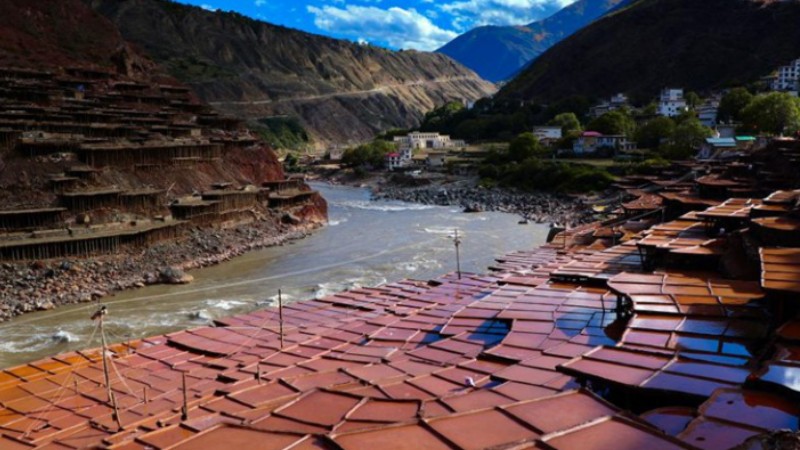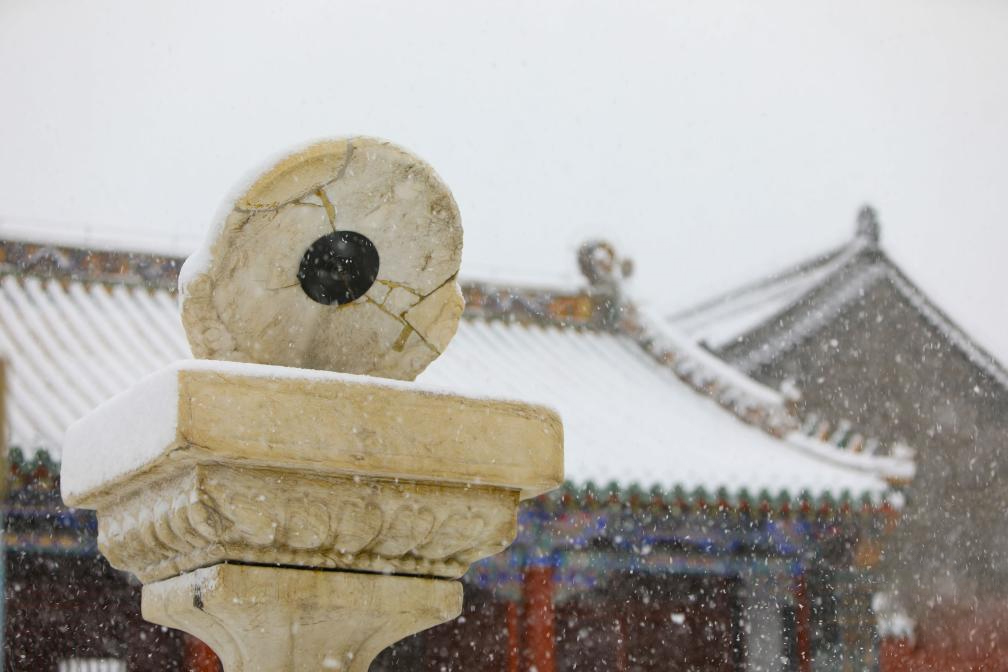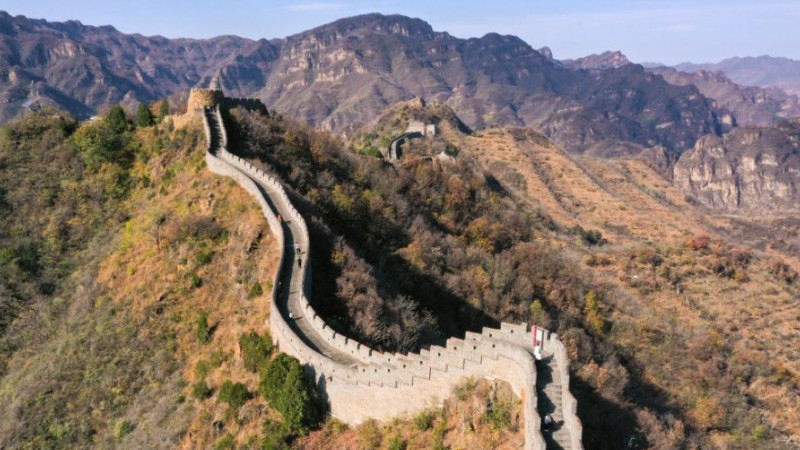Gaza aid conference kicks off in France; hope of improving situation is slim: experts
Amid worsening humanitarian crisis in Gaza, in a conference on humanitarian aid for Gaza held in Paris, France, on Thursday, French President Emmanuel Macron urged to protect civilians, and called for a humanitarian pause very quickly and "work towards a ceasefire," Chinese experts said that while the meeting aimed at seeking consensus on offering humanitarian aid to Gaza, the hope of improving the situation is slim.
On Thursday, France, on French President Emmanuel Macron's initiative, hosted an international conference on humanitarian aid for Gaza's civilians in the face of the critical humanitarian situation of the Palestinian civilian population in Gaza. The meeting aimed to "mobilize main players involved in the humanitarian response in Gaza and it also focused on actions to promote "compliance with international humanitarian law," according to a release from the French Ministry for Europe and Foreign Affairs.
Special Envoy of the Chinese Government on the Middle East Issue Zhai Jun is scheduled to attend the meeting. Chinese Foreign Ministry spokesperson Wang Wenbin said on Wednesday that China will continue to work relentlessly with the international community to bring about an early ceasefire, protect civilians, provide humanitarian assistance and implement the two-state solution.
Macron opened a Gaza aid conference on Thursday with an appeal for Israel to protect civilians as it fights Hamas, saying "all lives have equal worth" and that fighting terrorism "can never be carried out without rules."
French President Macron remarked on Thursday at the Paris meeting that "there must be a humanitarian pause very quickly in Gaza and that countries must also work for a ceasefire," in contrast to the US' Biden administration, which has rejected the international appeal for a ceasefire. Previously, France voted in favor of a resolution calling for a ceasefire in the ongoing fighting in Gaza, which was approved by the UN General Assembly on October 27 by a vote of 121-14.
Experts believe that the Paris meeting, which was attended by many countries, faces challenges in reaching a broader consensus. However, the majority of countries are expected to agree on most of the agenda items. Ultimately, such a meeting aims to gather international consensus and exert greater pressure on Israel and the US, Niu Xinchun, a research fellow at the China Institute of Contemporary International Relations in Beijing, told the Global Times.
More than 50 nations reportedly attended the meeting on Thursday, including several European countries, the US and some Arab countries. Palestinian Prime Minister Mohammad Shtayyeh also attended the meeting while Israel is absent, according to AFP.
Niu noted that currently, negotiations on humanitarian aid are underway, and there is a possibility of reaching a "pause" in the coming days to allow a few hours of truce for the entry of humanitarian aid and the release of some hostages.
The humanitarian meeting in Paris is the latest international effort to strengthen humanitarian aid to Gaza as this round of conflict has entered its 34th day on Thursday and more than 10,000 Palestinians have been killed - including more than 4,300 children - and more than 1.5 million Palestinians have been displaced in Gaza by the Israeli offensive launched in the wake of Hamas' sudden attack on October 7.
The future prospects for Gaza are highly uncertain, and it is difficult to predict the outcome of the war at this point, said Niu, noting that endgame topic is particularly sensitive because the US has learned from its past lessons in Iraq and Afghanistan, where the aftermath of military operations resulted in greater disasters than the conflicts themselves.
Crucial juncture
This round of the conflict between Israel and Palestine has reached a critical turning point. If a ceasefire is achieved as most of the international community has hoped, there is still hope for the Palestine issue. But if the humanitarian crisis repeats again and again, there will be more catastrophic consequences, Sun Degang, director of the Center for Middle Eastern Studies at Fudan University, told the Global Times.
However, Sun noted that as long as Israel keeps up its military actions in Gaza, the war will keep going and that neither the US nor the Western nations have put enough pressure on Israel to stop its military operations, de-escalation and an alleviation of the humanitarian situation are out of sight currently, Sun added. A conflict has no winners, and Israel and Palestine will both become victims in the end.
After a two-day meeting in Tokyo, Japan, foreign ministers of the G7 issued a joint statement that called for "humanitarian pauses" in the Palestine-Israel war while stressing Israel's "right to defend itself," and refrained from calling for a ceasefire. However, analysts have criticized the G7 for falling in line with the US' rhetoric of trying to use a "pause" to replace a "ceasefire."
A humanitarian pause, which is different from a ceasefire, is a temporary measure with more uncertainties and it will actually offer more time and space for Israel for future military operations. Only under a ceasefire can the situation can be calmed down, said Sun.
"It's clear which country or party truly supports a ceasefire and which does not. Apparently, G7's proposal for a pause is a 'fake ceasefire,' which failed to promote solution to solve the problem from the root. This fully shows the US and West's double standards and will further damage their international image," said Sun.
Some analysts noted that the US and some Western countries are both hypocritical and weak on the Palestine-Israel war. By not restricting Israel, they are allowing war crimes to happen in Gaza.
An Israeli military official on Thursday denied there is a humanitarian crisis in the Gaza Strip even as he acknowledged the Palestinian territory faces several challenges amid the ongoing war, according to media reports.
However, according to information released by the UN, hundreds of thousands of Palestinians still in northern Gaza face unprecedented hardship after being isolated by Israeli military operations. Heads of World Health Organization and the United Nations Relief and Works Agency noted that the medical conditions at Al-Shifa - the largest hospital in the Gaza Strip and one of the oldest Palestinian health institutions - are disastrous.
Different from the US' saying one thing and doing another and fanning flames by sending aircraft carriers to the region, China, Russia and the majority of the international community are calling for a ceasefire and their votes to support the UN resolution on October 27 are the common appeal from the Global South and the developing countries, analysts said.
The 121 votes supporting the UN resolution are the consensus and conscience of the international community to truly promote an end of war, instead of endorsing one-sided support like what the US is doing, said Sun.
However, some Western and US media have claimed that China and Russia are "tapping outrage over Israel's war in Gaza to gain support in the developing world."
In response, some Chinese analysts said that it is not China and Russia that're claiming the moral high ground over the current conflict; it is the US and some Western countries that are abdicating the moral high ground. Moreover, China's stance on the Palestine issue is consistent and has always called for the two-state solution.
What the US and the West are doing relating to the Palestine-Israel conflict contradicts the values they have always boasted about and has totally exposed that they use human rights as a political weapon, analysts said, noting that throwing mud at other countries won't exonerate the US from its responsibility in the conflict.
Photos
Related Stories
- Mediators intensify efforts to broker "humanitarian truce" in Gaza: Palestinian source
- Israeli PM reaffirms "no cease-fire in Gaza without release of hostages"
- Hamas says destroys 136 Israeli military vehicles in Gaza
- Israeli attack targets military positions near Syrian capital: war monitor
- China to do utmost for Palestine-Israel ceasefire: FM spokesperson
- G7 FMs call for humanitarian pauses in Israel-Hamas conflict
Copyright © 2023 People's Daily Online. All Rights Reserved.









